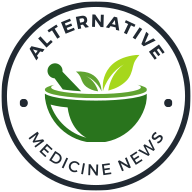The world of health and wellness has seen a significant shift towards natural supplements. These plant-based, organic alternatives to synthetic medicines are gaining popularity for their perceived health benefits. This blog post aims to delve into the efficacy of these natural supplements, exploring their benefits, potential drawbacks, and the science behind their effectiveness.
The Rise of Natural Supplements
The health industry has witnessed a surge in the use of natural supplements. People are increasingly turning to these organic alternatives in their quest for a healthier lifestyle. The reasons behind this shift are manifold.
The first is the growing awareness of the potential side effects of synthetic medicines. Many people are wary of the long-term effects of these drugs and are seeking safer alternatives. Natural supplements, derived from plants and other organic sources, are perceived as being free from harmful chemicals and side effects.
Moreover, the holistic approach of natural supplements appeals to many. These supplements are not just about treating a particular ailment; they are about promoting overall health and well-being. They are seen as a way to boost immunity, improve digestion, enhance energy levels, and promote healthy skin, among other benefits.
However, the question remains: are these natural supplements as effective as they are touted to be? Let's delve deeper into this topic.
Understanding the Efficacy of Natural Supplements
To understand the efficacy of natural supplements, we need to look at the science behind them. Many of these supplements are derived from plants that have been used for centuries in traditional medicine. Modern science is now catching up, with research showing that these plants do indeed have medicinal properties.
For instance, turmeric, a common spice in Indian cuisine, is also a popular natural supplement. Curcumin, the active ingredient in turmeric, has been shown to have anti-inflammatory and antioxidant properties. Similarly, ginger has been found to aid digestion and reduce nausea, while garlic can help lower blood pressure.
However, it's important to note that while these supplements can support health, they are not a cure-all. They should be used as part of a balanced diet and healthy lifestyle, not as a replacement for medical treatment.
The Benefits and Drawbacks of Natural Supplements
Natural supplements come with a host of potential benefits. They are generally well-tolerated, with fewer side effects than synthetic medicines. They can support overall health and well-being, and may help manage a range of health conditions, from digestive issues to heart health.
However, there are also potential drawbacks to consider. One of the main concerns is the lack of regulation in the supplement industry. This can lead to issues with quality control, with some supplements not containing the ingredients they claim to, or containing other, potentially harmful, ingredients.
Moreover, while natural supplements can support health, they are not a substitute for a healthy lifestyle. They should be used in conjunction with a balanced diet, regular exercise, and adequate sleep.
How to Choose the Right Natural Supplement
With so many natural supplements on the market, choosing the right one can be a daunting task. Here are a few tips to help you make an informed decision.
Firstly, do your research. Look for supplements that have been tested for quality and efficacy. Check the label for the list of ingredients and the amount of each ingredient.
Secondly, consult with a healthcare professional. They can provide advice based on your specific health needs and conditions.
Lastly, listen to your body. Everyone is unique, and what works for one person may not work for another. Start with a low dose and monitor your body's response.
The Future of Natural Supplements
The future of natural supplements looks promising. With ongoing research into their efficacy and the growing demand for natural health solutions, the market for these supplements is set to continue its upward trajectory.
However, there are challenges to overcome. Regulation needs to be improved to ensure the safety and quality of these products. More rigorous scientific research is needed to fully understand the benefits and potential risks of these supplements.
Despite these challenges, the potential of natural supplements is undeniable. They offer a natural, holistic approach to health and well-being that resonates with many people.
Conclusion
Natural supplements offer a promising alternative to synthetic medicines. They have the potential to support overall health and well-being, with fewer side effects. However, they are not a cure-all and should be used as part of a balanced lifestyle.
The efficacy of these supplements is backed by centuries of traditional use and increasing scientific research. However, more research is needed to fully understand their benefits and potential risks.
In the meantime, it's important to make informed decisions when choosing a supplement. Consult with a healthcare professional, do your research, and listen to your body.
Unraveling the Power of Natural Supplements
The journey into the world of natural supplements is an exciting one. These organic alternatives hold promise in promoting health and wellness in a holistic manner. While they are not a magic bullet, their potential benefits cannot be overlooked. As we continue to explore and understand their efficacy, it's clear that natural supplements will play a significant role in the future of health and wellness.

